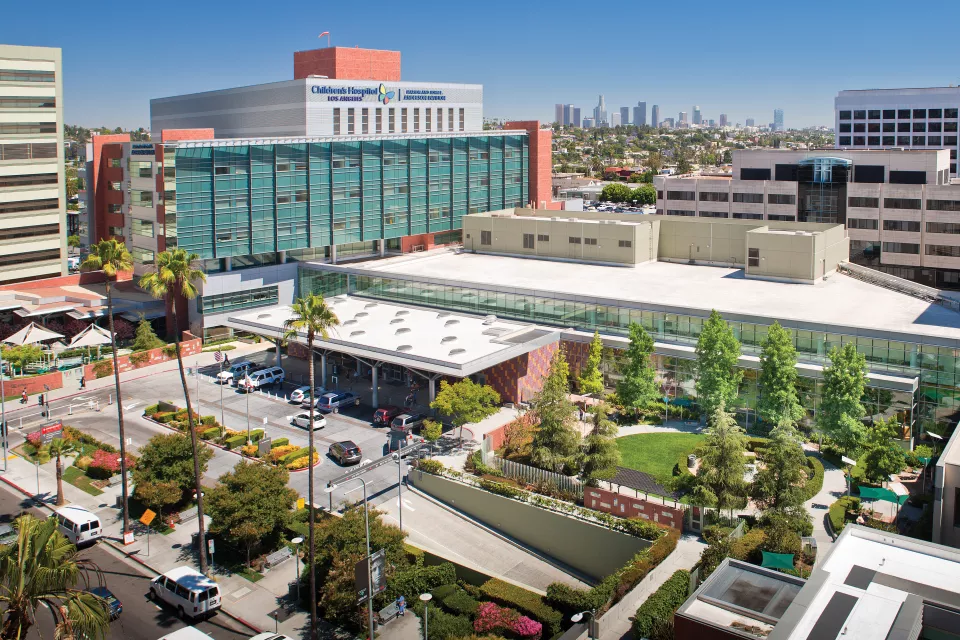Every child deserves the chance to thrive. At Children’s Hospital Los Angeles, we provide the care and support that Safely Surrendered infants need to have a healthy, hopeful start in life.
What is the Safely Surrendered Baby Law?
California’s Safely Surrendered Baby Law gives parents a safe way to give up custody of an infant up to 72 hours after birth, with no questions asked. Since its creation in 2001, this safe haven law has helped reduce the number of infant abandonments in California.
If you need more information about how to safely surrender an infant, visit BabySafeLA.org.
What is the Safe Surrender Clinic at CHLA?
The Safe Surrender Clinic is a first-of-its-kind health care program tailored to the unique needs of Safely Surrendered babies. Through research and years of successful patient outcomes, we’re the first in the nation to establish evidence-based practices to help this special population of infants.
A select team of health care providers at CHLA works directly with the Los Angeles County Department of Children and Family Services (DCFS) and adoptive parents to evaluate the physical, mental and developmental health of these infants.
What does an evaluation at the Safe Surrender Clinic include?
We provide initial consultations soon after a Safely Surrendered baby is placed with an adoptive family. And we offer parents the option of returning for more comprehensive evaluations once the child is 18 months old. At 18 months, we’re able to assess walking, talking, bonding, temperament and many other growth areas.
Evaluations include:
- Developmental and mental health assessments by an early childhood psychologist
- Pediatric exam by a pediatrician specializing in the foster care population
- Sensory and occupational therapy exam by an occupational therapist
A psychologist works closely with your child’s health care team to coordinate evaluations and any necessary treatment.
Why is the Safe Surrender Clinic so important?
The first three years of life are vital for a child’s successful growth and development. From coping and bonding skills to social interactions, children’s progress during this time can have a profound effect on the rest of their lives.
Safely Surrendered infants are at an especially high risk for medical and developmental challenges due to:
- Prenatal alcohol or drug exposure
- Prenatal neglect (lack of care during fetal development)
- Unknown health histories, such as biological (familial) diseases or disorders
- Unknown race or ethnicity, including health risks and vulnerabilities specific to certain populations
How do we help Safely Surrendered infants?
It’s essential that we intervene as early as possible to treat and prevent problems that can arise early in childhood. Through careful assessments and customized treatment plans, we can help children overcome a wide range of challenges, such as:
- Behavioral disorders, including severe or extended tantrums
- Developmental delays, such as challenges with speech or motor skills (muscle movements)
- Sensory problems, including issues with taste, hearing or vision
- Social challenges, such as a lack of interest in family or other children
I’m an adoptive parent of a Safely Surrendered infant. What do I need to know?
As an adoptive parent, you can observe your child closely. Sometimes developmental delays or health problems take time to emerge. Let us know if you notice anything out of the ordinary or have concerns that your child isn’t meeting important milestones.
The team at CHLA is here to help you identify potential problems early and guide your child to the right treatment. We can connect you with the medical and support services you need, either in the community or right here at CHLA.
I’m a health care provider. What do I need to know?
Pediatricians and health care providers can keep in mind that Safely Surrendered infants have unknown health histories. This population may have more health risks than other children, so careful monitoring throughout the early years is essential. Health care providers can also refer adoptive parents to our Safe Surrender Clinic if parents have concerns about their child.
How can I learn more about the Safe Surrender Clinic?
As a national leader in research, education and clinical practices for safe haven babies, we’re committed to helping other health care organizations in California and across the U.S. establish programs tailored to the needs of Safely Surrendered children.
To learn more about the Children’s Hospital Los Angeles Safe Surrender Clinic, please contact Dr. Micah Orliss at 323-361-8321 or morliss@chla.usc.edu.
